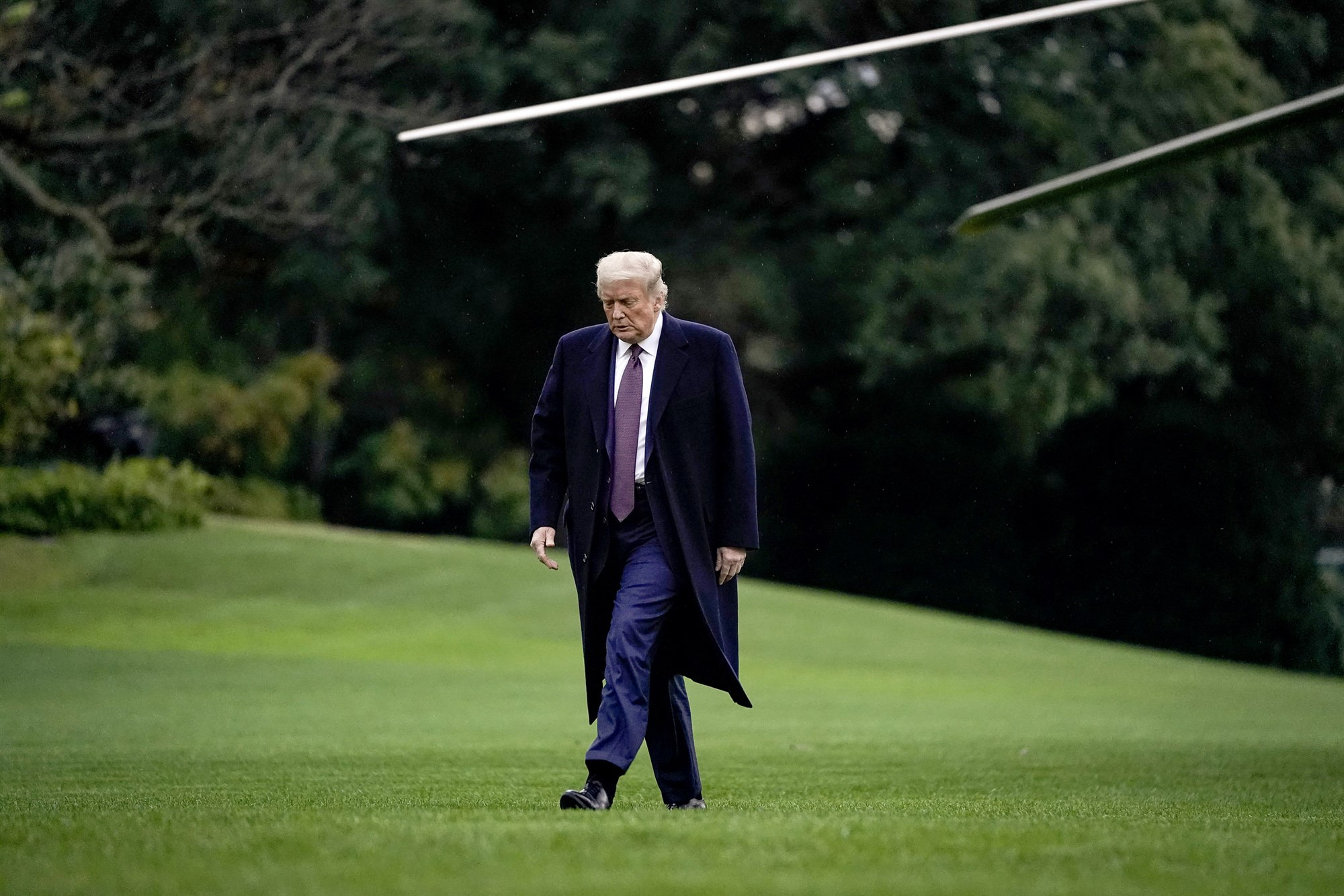
Donald Trump returns to his helicopter at the White House. (Photo: AP)
Washington, December 11 (RHC)-- The U.S. Supreme Court on Friday rejected the lawsuit filed by Texas that sought to overturn Joe Biden's election victory in four battleground states. President Donald Trump called the case "the big one," and 126 of the 196 Republicans in the House urged the court to take it. But the justices acted quickly to turn it down.
"Texas has not demonstrated a judicially cognizable interest in the manner in which another state conducts its elections," the court said in a brief unsigned opinion.
Justices Clarence Thomas and Samuel Alito said the court had no authority to refuse a case filed on its original docket, where one state files to sue another. But they said they would not have granted Texas any other relief and expressed no view on any of the issues raised in the lawsuit. Thus, the ruling was essentially a unanimous rejection of the Texas claims.
Supporters of the Trump campaign saw the Texas suit as their best hope for derailing a victory for Joe Biden before the actual presidential vote is cast by the Electoral College on Monday.
President-elect Joe Biden's team welcomed the news, calling it an end to the president's baseless legal battle. "The Supreme Court has decisively and speedily rejected the latest of Donald Trump and his allies’ attacks on the democratic process," said campaign spokesman Mike Gwin in a statement.
"This is no surprise — dozens of judges, election officials from both parties, and Trump's own Attorney General have dismissed his baseless attempts to deny that he lost the election," he said. "President-elect Biden's clear and commanding victory will be ratified by the Electoral College on Monday, and he will be sworn in on January 20th."
Michigan Attorney General Dana Nessel, a Democrat, said in a statement following the ruling that "it’s time to move forward." “Today’s Supreme Court decision is an important reminder that we are a nation of laws, and though some may bend to the desire of a single individual, the courts will not," she said. "Now it’s time to move forward — not as separate states, red or blue — but as united states in the continuing pursuit of a more perfect union.”
Never before had any state asked the court to do what Texas proposed -- to nullify election results from other states. The lawsuit sought to delay the vote of presidential electors in Georgia, Michigan, Pennsylvania and Wisconsin, arguing that voting procedures in those states violated their own state laws.

